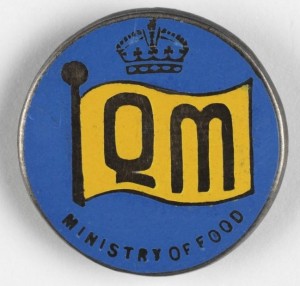The Queen’s Messenger Service
The Queen’s Speech…
This generation is as strong as any.
(5 April 2020. Queen Elizabeth II)
The Queen today has spoken, providing a message of hope, resilience, and courage in these difficult times. As a Second World War civilian and military veteran the Queen and her family, like her fellow citizens, endured the attacks made upon their nation.
In 1945 the Queen, then Princess Elizabeth, served as a Second Subaltern, later Junior Commander, with the Auxiliary Territorial Service of the British Army. Her mother, also named Elizabeth, and popularly known as the Queen Mother, continuously provided hope throughout the difficult days of the Second World War.
Queen’s Canadian Fund for Air Raid Victims
Queen Elizabeth (The Queen Mother) frequently helped with efforts to improve British morale on the Home Front. Together with her husband, King George VI, they visited areas devastated by enemy bombing during the Blitz. Her connection with the people made her one of their own. In March 1941, Queen Elizabeth lent her name to the Queen’s Canadian Fund for Air Raid Victims that was established to assist those on the British front-line.
The Queen’s Messenger Service
The heavy bombing of British cities during the Blitz (7 September 1940 – 10/11 May, 1941), meant, for those affected by the aftermath of air raids, food and drink were difficult to obtain. Mobile relief convoys, known as the Queen’s Messenger Service, comprising canteens, mobile kitchens and water carriers were organized and staffed by members of the Women’s Voluntary Service.
Each convoy was made up of 12 vehicles and about 50 staff who distributed food to such areas as Coventry where the organization, in one instance, served 14,000 meals. The lapel badges presented to this food flying service were cherished by their membership.
Did You Know?
Also appearing in today’s Movietone News film clip is Lord Woolton who was appointed the Minister of Food in April 1940 and established the British wartime rationing scheme. Due to the shortages of meats, fish and other products Britons were encouraged to grow Victory Gardens.
“Dig for Victory” became a popular wartime slogan and Lord Woolton Pie, a vegetarian pastry dish, made of potatoes, cauliflower, rutabaga, carrots, spring onions, vegetable extract (often Marmite), and oatmeal was nutritious though not universally popular!
We will meet again.
(5 April 2020. Queen Elizabeth II)
Lieutenant (Dietitian) Margarete Jessie Parker
Awarded the Associate of the Royal Red Cross
Royal Canadian Army Medical Corps
Lieutenant Parker is the Senior Dietitian at Camp Borden Military Hospital and a pioneer in her profession in the Canadian Army. After unusual civilian experience and university training, she joined 14 Canadian General Hospital and immediately proceeded overseas in June 1941. For eighteen months she rendered outstanding service under very difficult conditions. She was of material assistance in securing recognition of adequate nutritional standards for military hospital patients overseas. In February 1943 she returned to Canada and was posted to Victoria Military Hospital where she again demonstrated her outstanding ability. For the past thirteen months as Senior Dietitian at Camp Borden Military Hospital she has been responsible for training many junior officers. Due to her broad knowledge and outstanding professional skill she has led the way in the practical application of many advances in nutrition, particularly that of high protein feeding which has revolutionized wound healing. She has also cut food waste in this hospital to one of the lowest in Canada. By her unfailing pleasant manner combined with firm control of her staff she has been an inspiration to patients and personnel alike.


Comments